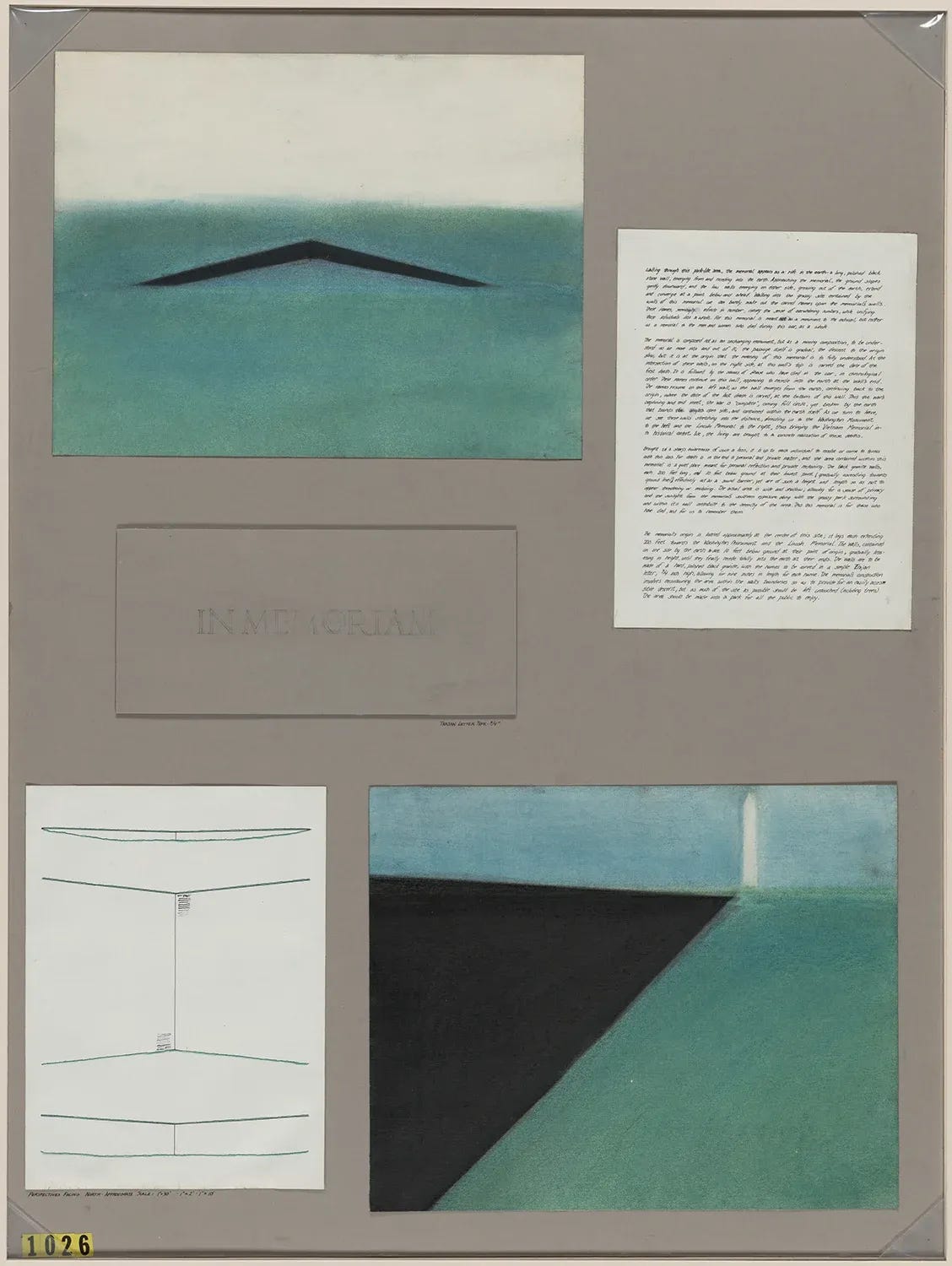
Maya Lin’s invitation to awareness
As both an artist and an environmental activist, a guiding principle of Maya Lin’s work has been to help make us aware of our surroundings. In the Academy Award winning (1995) documentary “Maya Lin: A Strong Clear Vision” Lin describes part of her process for creating the “Vietnam Veterans Memorial” while she was still an undergraduate student at Yale. To begin, she studied the ways people grieve. “What,” she wondered, “was a memorial’s purpose, especially, what is a memorial’s purpose in the Twentieth Century?” She talks at length in the film about the necessity of confronting loss. “It’s only when you accept the pain; it’s only when you accept death can you then come away from it, can you then overcome it.” She adds: “You have to accept and admit that this pain has occurred in order for it to be healed." In recent years Lin has trained our attention on impact of climate change. Her project “What is Missing?” (which exists both online and at physical locations) memorializes lost species and landscapes. In 2021, she installed “Ghost Forest” in Madison Square Park. The exhibit consists of 49 dead Atlantic white cedar trees from the Pine Barrens of New Jersey that were dying from salt-water rot and were scheduled to be cleared for a restoration project. Last year, Thessaly La Force wrote a nice profile of Lin for “Harpers Bazar.” Toward the end of the article, she writes about times she personally saw people experience Lin’s work and how it reflected the artist’s intentions: “I remember once seeing a couple embrace on one of the grassy hills of Wavefield (2009) at Storm King Art Center in New Windsor, New York. I remember a man mournfully kneeling at the Vietnam Veterans Memorial. Gestures like these don’t belong to Lin, but her work is what has allowed them to happen. Lin is always searching for such moments of revelation. There is a poetry to her empiricism that few other artists have come close to emulating. To her, how we see the world matters.”
Peter One’s “Cherie Vico”
The first time I heard Peter One’s song “Cherie Vico” on his 2023 album “Come Back to Me,” it grabbed my attention completely. The song is quiet but there is no escaping One’s beautiful voice and his guitars’ rhythms. One’s music blends the sounds of southwestern American country and folk from various cultures. In “Cherie Vico” the rhythmic refrain “come back to me” and the melodic flow of the guitars and banjo reveal his influences – ranging from Eboa Lotin, Paul Simon, Michael Jackson and Don Williams – and display his unique approach to songwriting. In this interview on PBS with Tom Casciato, One describes how he adapts country music themes through his own distinct lens and how he started his career in the Ivory Coast during college in the 1980s. One and his bandmate, Jess Sah Bi recorded “Our Garden Needs Its Flowers.” It was enormously popular, and the duo played for stadium-sized audiences across the country. He left his home because of political unrest and immigrated to the U.S. in the 1990s. He continued recording music, while working as a nurse, and eventually settled in Nashville. Brian Shimkovitz a former Fulbright scholar had listening to One and Bi’s music during a trip to West Africa. In 2018, he sought the musicians out to re-release their album for his project Awesome Tapes from Africa.
Skip Pitts’ on his iconic Shaft riff
I love this video featuring DC guitarist Charles “Skip” Pitts breaking down how he developed his iconic wah-wah peddle riff and helped create the theme song for the movie “Shaft.” The opening groove arose almost by accident as he was tuning up during his collaboration with Isaac Hayes. Pitts says he didn’t like what he played initially, even after listening to it the first time. But he grew to appreciate what the band created together. It’s a great example of collaborative process in music.



